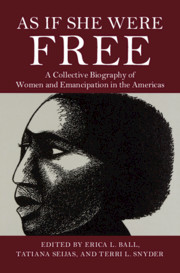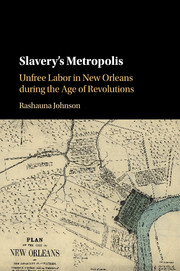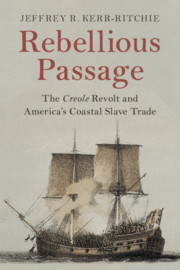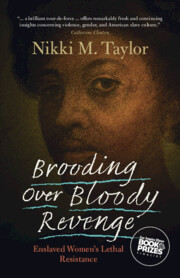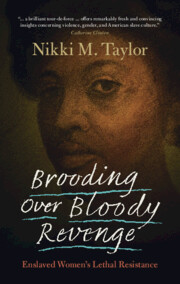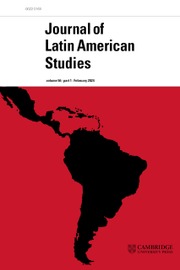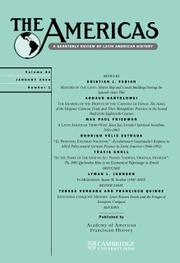As If She Were Free
As If She Were Free brings together the biographies of twenty-four women of African descent to reveal how enslaved and recently freed women sought, imagined, and found freedom from the sixteenth through the nineteenth centuries in the Americas. Our biographical approach allows readers to view large social processes – migration, trade, enslavement, emancipation – through the perspective of individual women moving across the boundaries of slavery and freedom. For some women, freedom meant liberation and legal protection from slavery, while others focused on gaining economic, personal, political, and social rights. Rather than simply defining emancipation as a legal status that was conferred by those in authority and framing women as passive recipients of freedom, these life stories demonstrate that women were agents of emancipation, claiming free status in the courts, fighting for liberty, and defining and experiencing freedom in a surprising and inspiring range of ways.
- Offers a new history of freedom by showing how women acted as agents of emancipation
- Takes a comparative and comprehensive approach to the history of slavery and emancipation, rather than focusing on one nation or region
- All chapters are original work and written by senior and rising women historians
Reviews & endorsements
‘This collection is a long-awaited addition to the scholarship on women of African descent in the Americas. Gathering the finest women historians working on the history of slavery and emancipation in several countries of the Americas, this volume brings to light the groundbreaking trajectories of black women in regions as diverse as Colombia, Brazil, Ohio, and Virginia. Very often forgotten in the historiography, these women were pioneers in fighting for their rights since the era of Atlantic slavery. This book will be a mandatory reading in any undergraduate or graduate course on women, slavery, and emancipation in the Americas.’ Ana Lucia Araujo, Howard University, Washington, DC
'… the most pleasant and notable merit of the work is the plurality of stories reconstructed in very different American geographies, as well as from historical sources that are also diverse.' Estela Roselló Soberón, Hispanic American Historical Review (translated from Spanish)
‘… an exciting and provocative anthology of twenty-four essays that explore both the meaning of freedom and the strategies to obtain it for individual women, mostly of African descent, within slave societies in the Americas or in the immediate post-abolition context.’ Karen Y. Morrison, Journal of African American History
Product details
October 2020Paperback
9781108737036
528 pages
155 × 230 × 30 mm
0.79kg
Available
Table of Contents
- Elizabeth Catlett and the form of emancipation Joyce Tsai
- Introduction Erica L. Ball, Tatiana Seijas and Terri L. Snyder
- Part I. Claiming Emancipation during the Rise of New World Slavery:
- 1. Margarita de Sossa, sixteenth-century Puebla de los Ángeles, New Spain (Mexico) Chloe L. Ireton
- 2. Paula de Eguiluz, seventeenth-century Puerto Rico, Cuba, and New Granada (Colombia) Nicole von Germeten
- 3. Reytory Angola, seventeenth-century Manhattan (US) Susanah Shaw Romney
- 4. Elizabeth Key, seventeenth-century Virginia (US) Taunya Lovell Banks
- 5. Hannah Manena McKenney, late-seventeenth- and early-eighteenth-century Bermuda and New Providence, Bahamas Heather Miyano Kopelson
- 6. Juana de Godinez, seventeenth-century Lima, Peru Michelle A. McKinley
- Part II. Experiencing Freedom during Slavery's Expansion:
- 7. Judith and Hannah: eighteenth-century Florida, South Carolina, and Virginia (US) Honor Sachs
- 8. Sarah Chauqum, eighteenth-century Rhode Island and Connecticut (US) Margaret Ellen Newell
- 9. Marion, eighteenth-century Natchitoches, Louisiana (US) Sophie White
- 10. Anna Maria Lopes de Brito, eighteenth-century Minas Gerais, Brazil Mariana Dantas
- 11. Juana Ramírez, eighteenth-century Oaxaca, New Spain (Mexico) Sabrina Smith
- 12. Juana María Álvarez, eighteenth-century New Granada (Colombia) Ana María Díaz Burgos
- 13. María Hipólita Lozano, eighteenth-century Lima, Peru Tamara J. Walker
- Part III. Envisaging Emancipation during Second Slavery:
- 14. Bessy Chambers, nineteenth-century Jamaica Sasha Turner
- 15. Minerva, nineteenth-century Texas and Louisiana, US and Mexico Alice L. Baumgartner
- 16. Cécile Fatiman and Petra Calabarí, late-eighteenth-century Haiti and mid-nineteenth-century Cuba Aisha K. Finch
- 17. Mary Ellen Pleasant, nineteenth-century Massachusetts and California, US Kellie Carter Jackson
- 18. Gabriela, nineteenth-century Rio Grande do Sul, Brazil Mariana Dias Paes
- 19. Maria Firmina dos Reis, nineteenth-century Maranhão, Brazil Maria Helena Pereira Toledo Machado
- Part IV. Enacting Emancipation in the Aftermath of Slavery:
- 20. María Remedios del Valle, nineteenth-century Argentina Erika Edwards and Florencia Guzmán
- 21. Lumina Sophie, nineteenth-century Martinique Jacqueline Couti
- 22. Emma Lane Coger, nineteenth-century Illinois, Iowa, and Missouri (US) Sharon E. Wood
- 23. Laura E. Davis Titus, nineteenth-century Norfolk, Virginia, US Cassandra L. Newby-Alexander
- 24. Carrie Williams Clifford, nineteenth- and early-twentieth-century Ohio, US Cathleen D. Cahill
- Bibliography
- Index.

